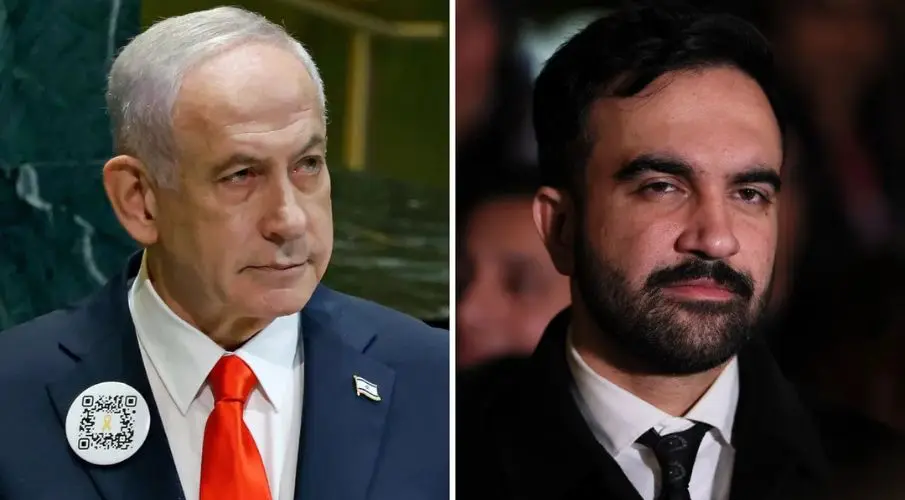New York – The statement by New York City’s newly elected mayor, Zohran Mamdani, has drawn international attention. Mamdani declared in several interviews that he would order the arrest of Israeli Prime Minister Benjamin Netanyahu should he enter the city. The background is an arrest warrant issued by the International Criminal Court (ICC) in The Hague, which accuses Netanyahu of alleged war crimes and crimes against humanity in the Gaza Strip. The ICC issued the warrant on November 21, 2024. The indictment states that Netanyahu, as head of government, bears responsibility for actions considered to be “the use of starvation as a method of warfare” and “deliberate attacks on the civilian population.” It also refers to “murder, persecution, and other inhumane acts.”
The United States, however, does not recognize the International Criminal Court. It is not a party to the Rome Statute, which governs the work of the ICC, and regards its decisions as legally nonbinding. This position is shared by both Republicans and Democrats – Donald Trump also imposed sanctions on the court during his first term. After the release of the arrest warrant, Trump declared that he viewed it as “a politically motivated attack on Israel.” In an interview with journalist Mehdi Hasan for Zeteo News, Mamdani said: “As mayor, New York City would arrest Benjamin Netanyahu. Our values are aligned with international law.” When asked to elaborate, he emphasized that the city must show “that it is willing to act where the federal government fails.” Mamdani repeated this stance in several appearances – including an interview with The New York Times, in which he noted that “local responsibility does not end at federal borders.”
Legal experts, however, consider such a move both practically and legally impossible. The foreign policy of the United States falls under the competence of the federal government, and the immunity of sitting heads of state and government applies even on American soil. Even if Mamdani were to instruct the New York Police Department to execute the warrant, the Department of Justice could intervene and halt the action. U.S. courts have repeatedly affirmed in comparable cases that international criminal jurisdiction has no effect without federal approval. In the interviews, Mamdani hinted that he was aware of these legal boundaries: “I will act within the law. I am not Donald Trump, who creates his own legal order.” His remarks are therefore to be understood more as a political signal – a stance against what he perceives as the federal government’s inadequate response to Israel’s conduct in Gaza.
Benjamin Netanyahu responded calmly to Mamdani’s statement. At a meeting with Trump at the White House, he said he was “not concerned” about possible arrest attempts in the United States. Trump, sitting beside him, commented on the move with the words: “I’ll get him out.”
Also in October 2025, Mamdani “repeated” this statement. His words had long since become a defining part of his campaign. Mamdani, 34, the son of Ugandan-Indian parents and a member of the Democratic Socialists of America, has for years advocated a strongly pro-Palestinian stance. In his speeches, he speaks of “the United States’ shared responsibility for the suffering in Gaza” and calls for “a policy consistent with international law.” Critics accuse him of overstepping his authority with symbolic gestures in foreign policy matters, while supporters see in him a representative of moral consistency.
Whether Mamdani’s initiative will ever have practical significance is doubtful. Under international law, Netanyahu’s arrest in the United States would only be possible if the federal government explicitly recognized the warrant. Politically, however, the controversy shows how much the American debate over Israel’s war policy has shifted – and that questions of international law have now reached the level of municipal elections. In practice, Mamdani’s statement is likely to serve mainly as a test case for how far symbolic politics can go in a city whose international importance far exceeds its legal authority.
Investigative journalism requires courage, conviction – and your support.
Please also strengthen our journalistic fight against right-wing populism and human rights violations. We do not want to finance ourselves through a paywall so that everyone can read our research – regardless of income or origin. Thank you very much!


Er ist auf alle Fälle ein sehr „eigener“ Kopf, darüber wird er auf alle Fälle noch stolpern. Aber ich begrüße einen Politiker, der seine Meinung nicht an eine mögliche Wiederwahl knüpft. Aber dass die amerikanische Politik irgendwann einmal beiden Seiten des Nahostkonflikts berücksichtigt, bleibt wohl ein Traum.
das ist er, und das wird für ihn ganz, ganz schwer, in diesem haifischbecken
Danke für den Artikel. In Deutschland hat man darüber nichts erfahren.
Er zeigt Haltung, obwohl ihm klar sein dürfte, dass er keine rechtliche Handhabe hat.
In meinen Augen wäre es geschickter gewesen, dies auf alle Personen, für die ein Haftbefehl vom IStGh vorliegt, bezogen hätte.
So bedient er die Kritik der Republikaner und auch einiger Demokraten, die ihm vorwerfen, „Islamisten zu bevorzugen“.
Wichtiger ist aber, dass er sich jetzt an die Arbeit macht um möglichst viele seiner Wahlversprechen umzusetzen.
Deswegen wurde er gewählt.